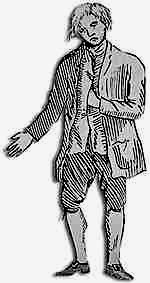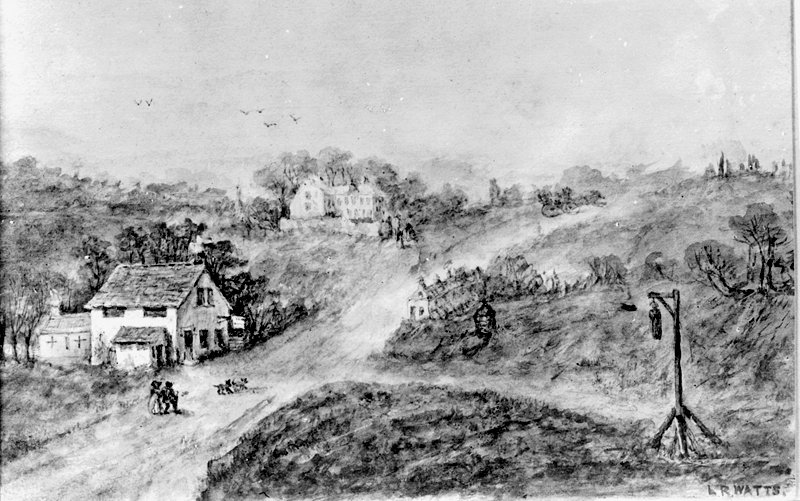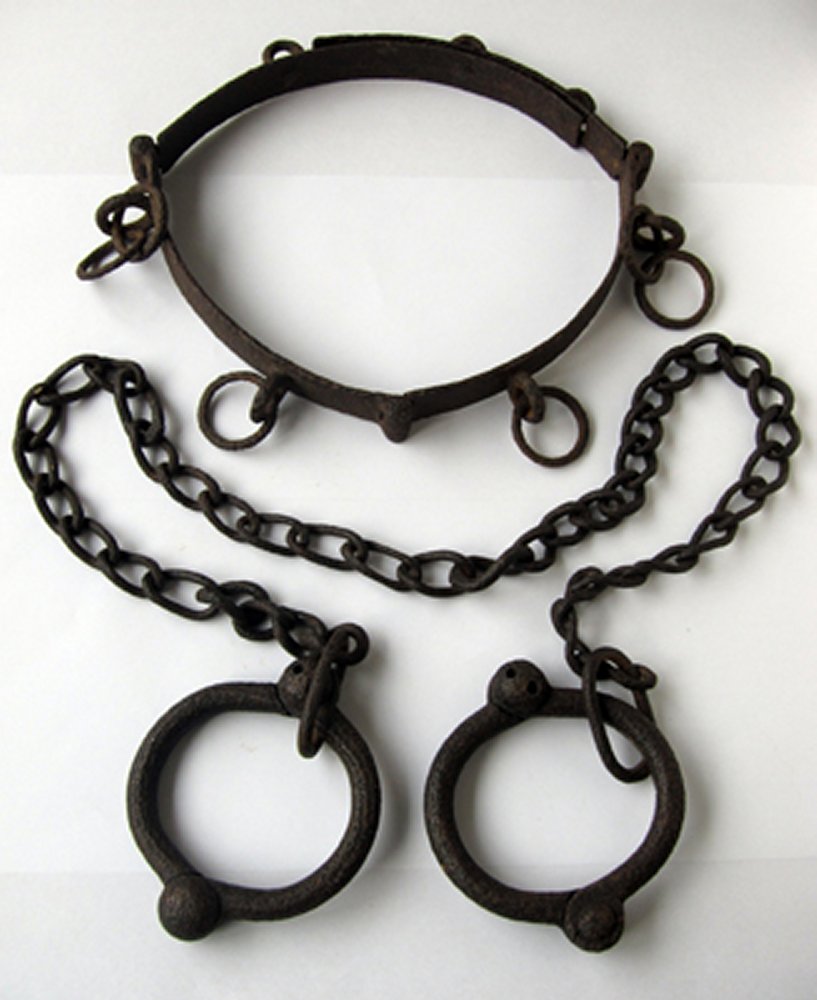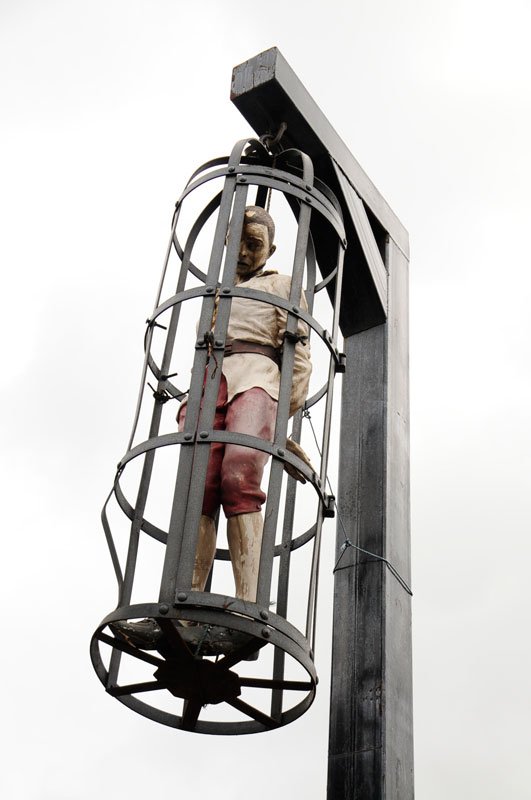Sheffield Register April 27, 1792
On Monday night, as Mr Thyas Otley of Bolton upon Dearne was returning home from Rotherham market, with another person of Denaby, whose name we cannot learn, they were stopped in Carr Lane by two men, whom they remembered to have been at a place where they have paid some money that day, and who robbed Mr Otley of 20 guineas, and his companion of 17 guineas. Not satisfied with their booty they treated Mr Otley in a very abusive manner.
They were, however, both arrested, and proved to be a taylor and weaver, of Brewhill, who had come so far on Sunday, out of mere curiosity, see the body of the unfortunate *Broughton.
For it is probable these men fired by his glorious example, but only ventured to trade in his footsteps, in order to advance themselves to the pinnacle of eminence to which he is already exalted; on which envy itself must acknowledge in no more than their deceit.
Mark the effects of gibbeting! Had Broughton’s remains been confined to the worms of the earth, instead of the fowls of the heavens, these wretches might have remained, if ever they were – honest men.
Spence Broughton

Spence Broughton was born near Sleaford in Lincolnshire. The son of a farmer, he took up farming too, married and had three children. He developed a gambling habit and left his wife for the cockfighting scenes of Sheffield, Grantham and Derby.
He became a highwayman and was convicted of robbing the Rotherham and Sheffield mail.
The robbery took place at Ickles, on the Rotherham edge of Attercliffe Common early in 1791. Broughton and his accomplice laid in wait for the mail to arrive. George Leasley, the boy driving the mail cart, described how he was led into a field, blindfolded with a handkerchief, and his hands tied behind his back and fixed to a hedge. After about an hour he freed himself and found his horse, but the Rotherham post bag was gone. Broughton and Oxley escaped towards Mansfield. They found that the only item of value was a French bill of exchange worth £123. They disposed of the rest of the contents in a brook and parted, with Oxley proceeding to London to cash the bill.
Broughton and Oxley were arrested, along with John Shaw, in London in October 1791 following further robberies at Cambridge and Aylesbury. Broughton was sent to Newgate Prison, and Oxley to Clerkenwell Prison. Oxley escaped from Clerkenwell on 31 October leaving Broughton to stand trial alone.

The trial took place in York on 24 March 1792. Shaw testified that Broughton and Oxley had come to him after robbing the Rotherham mail to ask him where they could cash the £123 bill. John Townsend, the arresting officer, described the events on the day of the arrest, after which the jury found Broughton guilty and the judge, Mr. Justice Buller, sentenced him to death by hanging “and afterwards to be hung in chains on the Common, within three miles of Sheffield, where the robbery was committed.” The trial took only 90 minutes.
Broughton was executed at Tyburn, York on 14 April 1792 and two days later he was suspended in a gibbet on Attercliffe Common across from the Arrow Inn. On the first day alone 40,000 people came to see the body.
Spence Broughton’s Chains at Sheffield Museum

After his execution he gained notoriety and passed into folklore because the body was hung there for 36 years.

The Noose and Gibbet Inn, on Broughton Lane, where it stands, commemorate his memory.